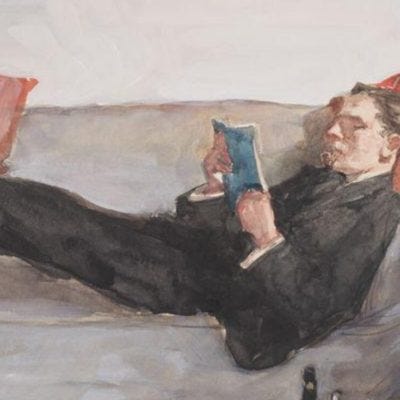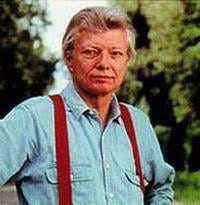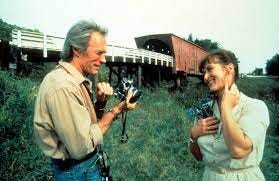Why Don’t Economists Write More Fiction?
Great (and Even Not So Great) Literature Has Something To Teach Us About Society and the Economy
By James Broughel
Not many American males in their early 40s read romance novels, but that’s what I found myself doing several weeks ago when I picked up “The Bridges of Madison County” by Robert James Waller. There was a practical reason for reading the book: Waller, who passed away in 2017, was an economist. He earned his Ph.D. in business in 1968, and afterwards taught management and economics courses at the University of Northern Iowa. I was interested in Waller’s book because it may be the most successful work of fiction ever written by an economist.
Author Robert James Waller. Image Credit: Wikimedia Commons
Many people find economics (and by extension, economists) lacking in emotional and aesthetic depth. Trained in the field myself, I know some of these criticisms paint a warped picture of the profession. At the same time, economists—with their focus on data—do sometimes lose sight of the bigger picture, particularly the valuable life-lessons that art, culture and literature can teach us.
With this in mind, I recently asked some of my Twitter followers if they could name any works of fiction written by economists. Most of what I received back were snarky jokes about John Maynard Keynes’ influential book, “The General Theory,” which offers advice like burying dollar bills in the ground and digging them up again as a cure for unemployment. Other books brought to my attention were works of fiction intended to teach economics, such as “Murder at the Margin” or “The Fatal Equilibrium,” both written by a pair of economists under the pseudonym Marshall Jevons. Waller’s extraordinary commercial success and his broad appeal are what make his novel stand out.
What the Twitter experience taught me is that fiction is not really on economists’ radars (at least judging by my modest group of followers, many of whom are economists). Waller’s pop art may not be the best or most meaningful story ever written, but it’s a story for its own sake. It’s also a story that reached a huge audience: “The Bridges of Madison County” sat on The New York Times Best Sellers list for more than three years, selling many millions of copies. Within a few years of publication, it was made into a successful Hollywood film starring Clint Eastwood and Meryl Streep.
In a nutshell, the novel tells the tale of Francesca Johnson, an Italian war bride living with her farmer husband and children in rural Iowa. She finds herself unsatisfied with the direction her life has taken. One week while her family is away at a state fair, she has an affair with a National Geographic photographer named Robert Kinkaid, who is visiting her small town to take photos of several historic covered bridges not far from her house.
Clint and Meryl as Robert and Francesca in the 1985 film version of The Bridges of Madison County. Image Credit: Warner Brothers via Wikimedia Commons
From the book’s very first, sappy pages, it’s pretty obvious where the story is headed. To be clear, I actually enjoyed the novel—and found it quite touching in several places—but I also feel one must acknowledge the book’s limitations. The book is a pretty standard genre romance. But it’s also brief, easy to read and relatable. Francesca has sacrificed much for her family, something women all over the world can identify with. My own wife, for example, gave up a career as a professor to raise our family.
Another theme of the book is how technological change is making it hard for people like Robert to survive in the modern world. He is described as “the last cowboy.” He’s rugged and good with his hands, but he also reads poetry and has traveled the world. In the mid-20th century—the book’s main events take place in 1965—someone like Robert could do all right for himself, hashing out a living as a photographer for a highly respected magazine. But he is a dying breed in a society that is changing all too rapidly. It’s hard to imagine him handling a desk job even in his own time, let alone in today’s Zoom culture.
Robert worries that the world is becoming too rational and that people have stopped believing in magic, a critique perhaps relevant to the economics profession today. Economists are some of the smartest and most capable thinkers in the academy. The problem is that the world may be more magical and mysterious than they want to believe. Data analysis is important, but poetry has answers as well; they just need to be decoded.
In the post-Me Too era, the book also reads as mildly sexist. Physically, Francesca is a voluptuous Italian woman, a little beyond her prime but still extremely attractive. At the same time, she is a character of little depth. She says few words. For someone living on a farm, she is surprisingly helpless; she has trouble opening beer bottles or lighting cigarettes on her own. She also gets excited at Robert’s muscular arms and chest while he washes off at a pump in the backyard. One needn’t see the author’s name on the cover to know that Francesca is the essence of what female desire looks like as perceived through the eyes of a man. I also couldn’t help but wonder if Waller imagines himself as Kinkaid: a deep, sophisticated and attractive man, able to sweep unsuspecting women off their feet.
Despite these flaws, I liked the book. It is cheap entertainment, yes, but it also reflects how society and perceptions have changed, even in the 30 short years since it was first published. More importantly, I am impressed that Waller took the risk of writing a book like this. That he was an economist makes me wonder whether economics as a discipline could look differently than it currently does. The emphasis on data science may seem inevitable given the role economists currently play as technocratic policy advisers, but go back and read classics by Adam Smith, David Hume or John Stuart Mill. It’s not hard to imagine an alternative path for the profession that’s less about expert-driven policy advice and more about trying to answer some of life’s bigger questions. Alas, it was not meant to be.
Like Robert Kinkaid, I worry there is something about our modern age that is too rational and lacking in magic, and maybe it’s not just the economists that are the problem. Sweeping technological changes are afoot, and we aren’t thinking enough about how they will affect our lives. Without a deeper understanding of our nature, without a greater appreciation of the intangibles and mysteries in life—in other words, without art, literature and poetry—we could find ourselves vulnerable and unprotected from the irreversible rush of the tide that is headed straight for us.




